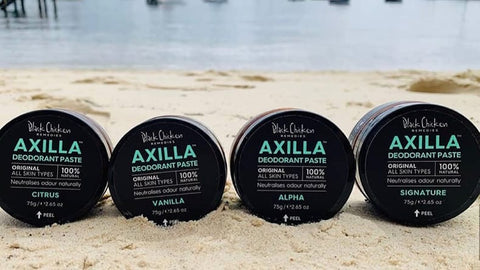What is Coconut Sugar?
Coconut sugar is derived from the coconut palm blossoms, it is the boiled then dehydrated sap of the coconut palm and is considered to be the most sustainable sweetener in the world!
Let's get one thing straight though, coconut sugar is not a nutritional superfood, but it does offer more trace nutrients like vitamins and minerals than regular, white table sugar. It contains small amounts of Vitamin C, magnesium, potassium, phosphorous, calcium, iron and zinc. You'll also find the B vitamin inositol, often used as a mood booster, in coconut sugar.
Coconut sugar also contains a fibre called Inulin which may explain how it can slow glucose absorption and explain why it has such a low GI (Glycemic Index) than other sugars.
The glycemic index measures the effects of carbohydrates on your blood sugar. Coconut sugar ranks just 35 on this index, while regular table sugar ranks between 60 and 75 (and honey ranks 55, and agave 45!). This means it has a much less dramatic effect on your blood sugar levels, helping you to avoid the dreaded 'sugar crash'.
Nutrients and inulin aside, coconut sugar is a sweetener and contains equal amounts of fructose and glucose as regular sugar, but the difference is regular table sugar and high fructose corn syrup don't contain any vital nutrients and therefore supply ’empty" calories.
A study in the ASEAN Food Journal found that coconut sugar is about 78 percent actual 'sugar' sugar, compared with 100 percent of table sugar.●
How To Use Coconut Sugar
Coconut sugar tastes very similar to raw, or brown sugar. With a similar sweetness, you can simply replace 1:1 with cane sugar in your morning tea, coffee, iced tea, homemade lemonade, chai or hot chocolate! It can also be easily incorporated into all your favourite dessert recipes...why not try a delicious brownie recipe using raw cacao powder, goji berries and coconut sugar!
●Study quoted from Huffington Post



